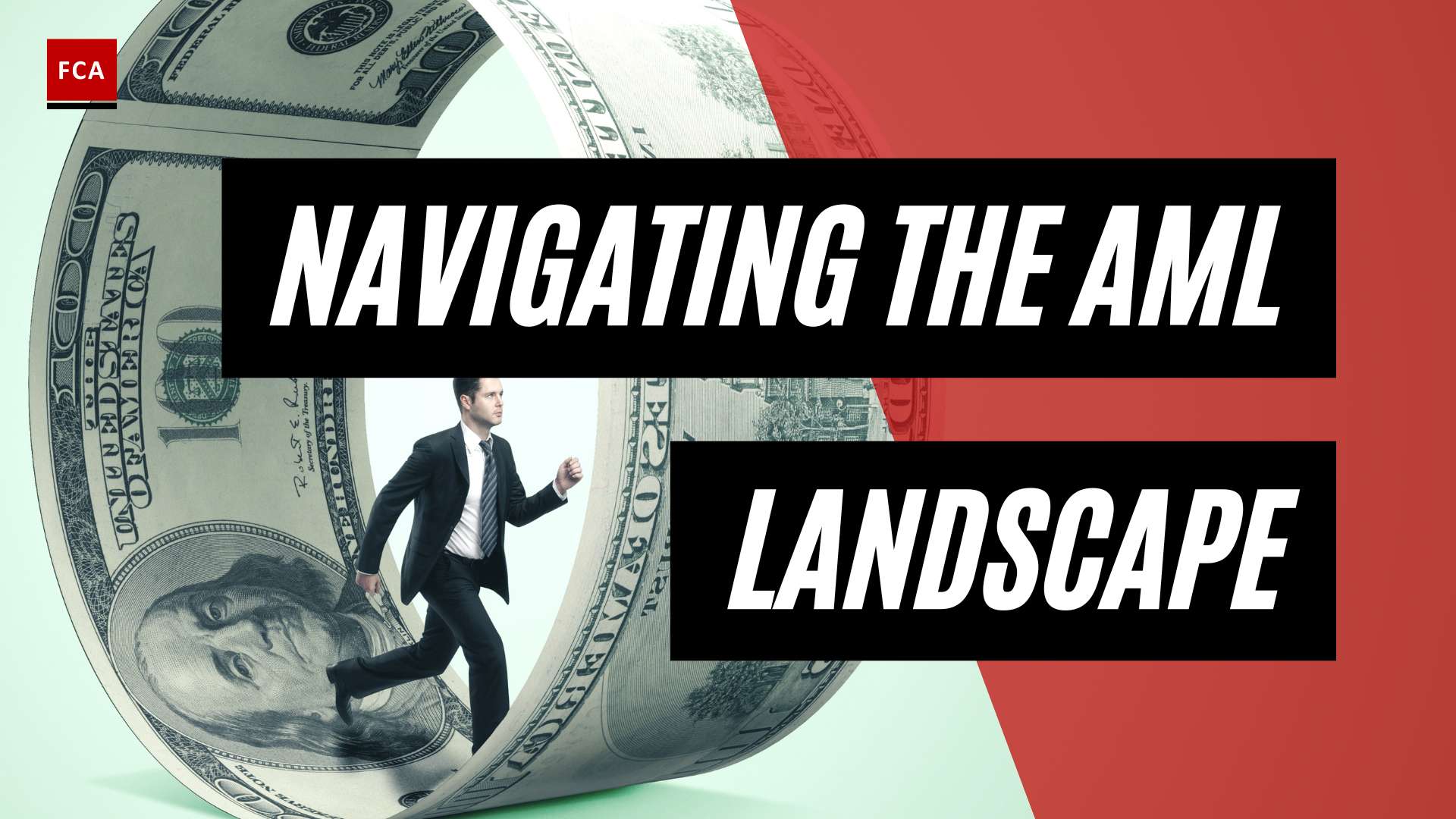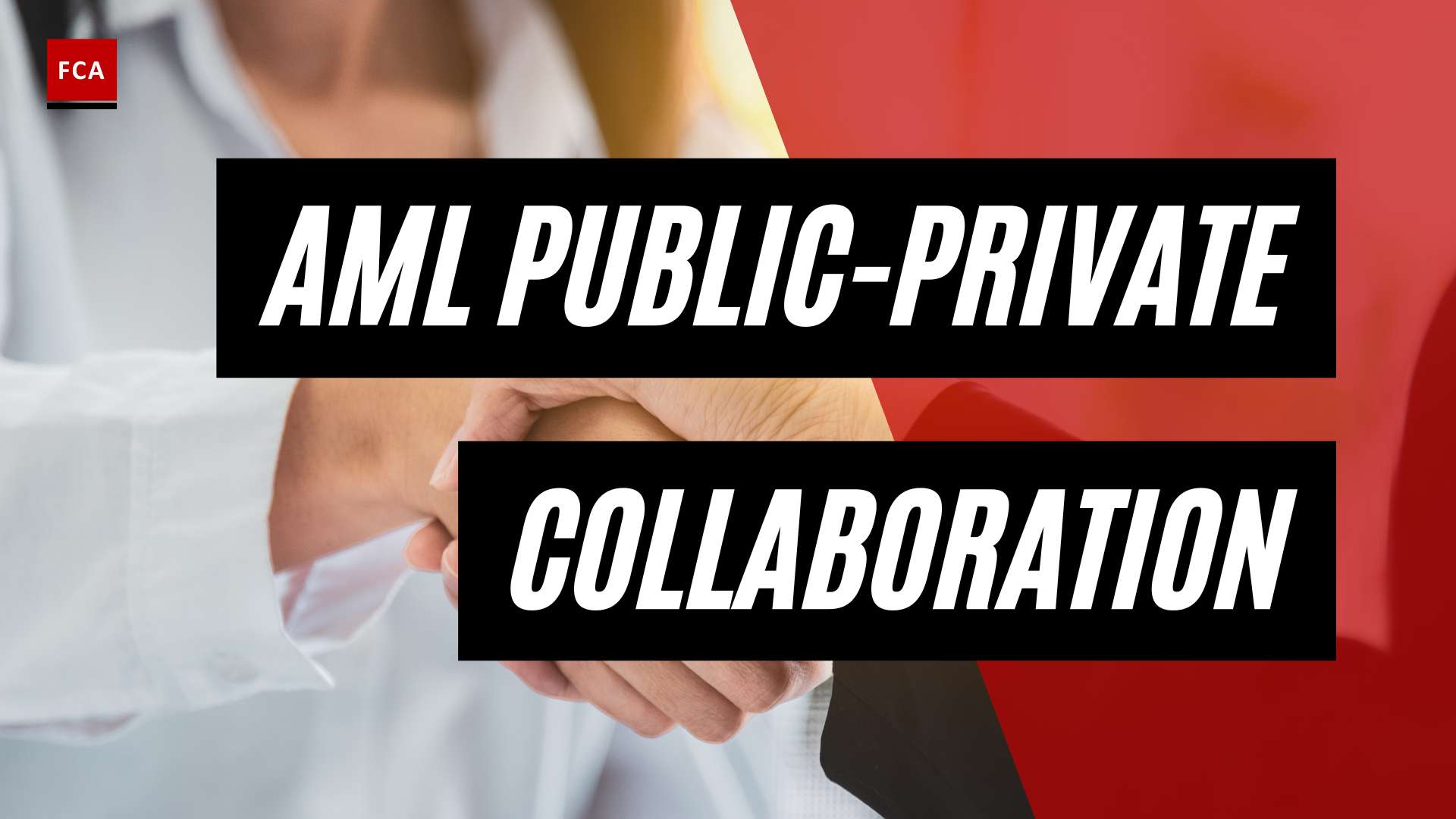The Growing Importance of Anti-Money Laundering
In today’s globalized economy, the fight against money laundering has become increasingly important. Money laundering refers to the process of making illegally obtained funds appear legitimate by disguising their true origins. To combat this criminal activity, the field of Anti-Money Laundering (AML) has emerged, playing a crucial role in safeguarding the financial system and preventing illicit activities.
Understanding Anti-Money Laundering (AML)
Anti-Money Laundering (AML) encompasses a set of regulations, policies, and procedures designed to detect, prevent, and report suspicious financial activities. AML aims to identify individuals or entities involved in money laundering and the financing of terrorism, ultimately protecting the integrity of the global financial system.
AML professionals are at the forefront of this fight against financial crime. They play an integral role in ensuring that financial institutions and businesses comply with AML laws and regulations. By analyzing transactions, conducting investigations, and implementing risk mitigation strategies, AML professionals contribute to the prevention and deterrence of money laundering activities.
The Role of AML Professionals
AML professionals have diverse responsibilities that involve a combination of analytical, technical, and communication skills. They are tasked with identifying and assessing potential risks, investigating suspicious activities, and reporting findings to the appropriate authorities. AML professionals collaborate with law enforcement agencies, regulatory bodies, and internal stakeholders to ensure compliance with AML laws and maintain the integrity of financial systems.
To succeed in their role, AML professionals must possess a strong understanding of AML laws and regulations. They must stay up-to-date with the evolving landscape of financial crime and be knowledgeable about the latest trends, typologies, and technological advancements used by money launderers. AML professionals need to be able to analyze complex financial transactions, identify patterns, and recognize red flags that may indicate illicit activities.
Furthermore, AML professionals must demonstrate attention to detail and accuracy in their work. They are responsible for meticulously reviewing financial records, conducting thorough investigations, and compiling comprehensive reports. This attention to detail is crucial to ensuring the effectiveness of AML programs and enabling the detection of suspicious activities.
By possessing the necessary skills and expertise, AML professionals contribute to the overall goal of maintaining the integrity of the financial system and safeguarding against money laundering and terrorist financing. As the field of AML continues to evolve, professionals in this field must continuously enhance their knowledge and skills to stay ahead of emerging threats and effectively combat financial crime.
Essential Skills for AML Professionals
Working in the field of Anti-Money Laundering (AML) requires a range of skills to effectively identify and combat financial crimes. AML professionals play a crucial role in safeguarding the integrity of financial systems and preventing money laundering activities. Here are three essential skills that are vital for AML professionals:
Strong Analytical Skills
AML professionals must possess strong analytical skills to effectively analyze complex financial data and detect suspicious patterns or transactions. Analytical skills enable them to identify potential risks, anomalies, and red flags that may indicate money laundering activities. By examining large volumes of financial information, AML professionals can uncover hidden connections and patterns that may not be apparent at first glance.
In addition to analytical skills, proficiency in data analysis and investigation techniques is crucial for AML professionals. They must be able to apply various analytical tools and methods to interpret financial data accurately. Utilizing statistical techniques and data visualization tools can aid in identifying irregularities and trends that may require further investigation. AML professionals should also possess critical thinking abilities to make informed judgments and decisions based on the information gathered.
Knowledge of AML Laws and Regulations
A comprehensive understanding of AML laws and regulations is essential for AML professionals. They must stay updated on the evolving regulatory landscape to ensure compliance and effectively detect and prevent money laundering activities. AML professionals should be knowledgeable about the legal frameworks, reporting requirements, and regulatory guidelines specific to their jurisdiction.
By staying informed about AML regulations, professionals can develop effective compliance strategies and implement appropriate risk mitigation measures. This knowledge enables them to identify potential gaps in processes and implement necessary controls to mitigate risks associated with money laundering. AML professionals can enhance their understanding of AML laws and regulations by pursuing relevant certifications. For more information on AML certification requirements, refer to our article on aml certification requirements.
Attention to Detail and Accuracy
Attention to detail and accuracy are critical skills for AML professionals. The nature of their work requires them to examine intricate financial transactions, analyze data, and ensure the accuracy of reports. AML professionals must pay close attention to even the smallest details and exercise diligence when reviewing financial documents.
Mistakes or oversights could have serious consequences, potentially allowing illicit transactions to go undetected. Therefore, AML professionals must possess a meticulous approach, conducting thorough investigations and ensuring the accuracy of their findings. Adhering to established protocols and following standardized procedures helps minimize errors and maintain consistency in their work.
By honing their analytical skills, developing a deep knowledge of AML laws and regulations, and maintaining a high level of attention to detail, AML professionals can effectively carry out their responsibilities in combating money laundering activities. These skills, combined with other technical competencies and ethical conduct, are paramount in safeguarding the integrity of the financial system.
Technical Skills for AML Professionals
In the ever-evolving landscape of anti-money laundering (AML), AML professionals require a range of technical skills to effectively combat financial crimes. These skills enable them to gather and analyze data, utilize specialized software and tools, and understand complex financial systems and transactions. Here are three key technical skills that are essential for AML professionals:
Data Analysis and Investigation Techniques
AML professionals must have strong data analysis and investigation techniques to identify suspicious patterns and uncover potential money laundering activities. They need to be proficient in analyzing large volumes of data from various sources, such as financial transactions, customer profiles, and external databases.
By employing data analysis techniques, AML professionals can detect anomalies, trends, and red flags that may indicate potential money laundering activities. They should be skilled in using statistical analysis, data visualization, and other tools to effectively interpret and present their findings.
Proficiency in AML Software and Tools
To streamline their work and enhance efficiency, AML professionals need to be proficient in using AML software and tools. These specialized tools assist in automating processes, managing alerts, conducting risk assessments, and generating reports.
By leveraging AML software and tools, professionals can efficiently monitor transactions, perform customer due diligence, and detect suspicious activities. They should be knowledgeable about industry-standard software and tools that are used for transaction monitoring, watchlist screening, and case management.
For more information on AML software proficiency, refer to our article on AML software proficiency.
Understanding of Financial Systems and Transactions
A comprehensive understanding of financial systems and transactions is crucial for AML professionals. They should possess knowledge of various financial instruments, such as bank accounts, wire transfers, cryptocurrencies, and shell companies. This understanding helps them identify complex transaction patterns, layering techniques, and other money laundering methods.
Being familiar with the regulatory frameworks and reporting requirements within the financial sector is also essential. AML professionals need to stay updated with the latest AML regulations and guidelines to ensure compliance and effectively report suspicious activities.
By combining their technical skills with their expertise in AML laws and regulations, AML professionals can actively contribute to the prevention and detection of money laundering activities.
The technical skills mentioned above are just a few examples of the skillset required for AML professionals. To excel in this field, individuals should continuously enhance their technical abilities, stay informed about emerging trends and technologies, and pursue relevant certifications, such as AML certification requirements. Equipped with these technical skills, AML professionals can play a vital role in safeguarding the integrity of financial systems and protecting against money laundering.
Communication and Collaboration Skills
In the field of anti-money laundering (AML), effective communication and collaboration skills are essential for AML professionals to carry out their responsibilities successfully. These skills enable AML professionals to engage with stakeholders, work closely with law enforcement and regulatory agencies, and build and maintain relationships within the industry.
Effective Communication with Stakeholders
AML professionals must possess strong communication skills to effectively convey complex AML concepts and findings to stakeholders. This includes being able to explain AML regulations, procedures, and requirements clearly and concisely. Effective communication ensures that stakeholders, such as senior management, understand the importance of AML efforts and their role in preventing money laundering and financial crimes.
Additionally, AML professionals must be adept at active listening to gather information, address concerns, and respond appropriately. They may need to communicate with various individuals across different departments within an organization, including compliance officers, legal teams, and customer-facing staff. Clear and concise communication helps to ensure that AML measures are properly implemented throughout the organization.
Collaboration with Law Enforcement and Regulatory Agencies
Collaboration with law enforcement and regulatory agencies is crucial in identifying and preventing money laundering activities. AML professionals must be able to effectively collaborate and share information with these external entities. This collaboration involves providing timely and accurate reports on suspicious activities, assisting in investigations, and supporting legal proceedings when necessary.
To facilitate effective collaboration, AML professionals should have a solid understanding of the reporting requirements and protocols established by the relevant authorities. This includes knowledge of the specific information that needs to be shared, the timelines for reporting, and the channels through which the information should be communicated. By maintaining open lines of communication with law enforcement and regulatory agencies, AML professionals contribute to the collective effort in combating money laundering.
Building and Maintaining Relationships
Building and maintaining relationships within the industry is crucial for AML professionals. These relationships can be with colleagues, supervisors, and other professionals in the field. AML professionals must be able to foster trust and cooperation to facilitate information sharing and collaboration.
Networking and attending industry events can provide opportunities for AML professionals to connect with peers, exchange knowledge, and stay updated on emerging trends and best practices. By actively engaging in professional communities and organizations, AML professionals can build a strong network that supports their ongoing development and enhances their effectiveness in combating money laundering.
By possessing effective communication and collaboration skills, AML professionals can ensure that AML efforts are properly understood and implemented within organizations, collaborate effectively with law enforcement and regulatory agencies, and build relationships that contribute to a stronger AML community. These skills, combined with other essential skills for AML professionals, such as strong analytical abilities and knowledge of AML laws and regulations, form a solid foundation for a successful career in AML.
Ethical and Professional Conduct
In the field of Anti-Money Laundering (AML), professionals play a critical role in combating financial crimes and ensuring the integrity of financial systems. Alongside technical skills, AML professionals must adhere to high ethical and professional standards. This section explores three key aspects of ethical and professional conduct for AML professionals: commitment to integrity and ethics, maintaining confidentiality and security, and continuous learning and professional development.
Commitment to Integrity and Ethics
Integrity and ethical behavior are paramount for AML professionals. They are entrusted with sensitive financial information and must demonstrate the highest level of honesty, transparency, and ethical decision-making. A commitment to integrity involves conducting thorough investigations, reporting suspicious activities promptly, and upholding the legal and regulatory standards set forth by relevant authorities.
AML professionals must operate with a strong moral compass, ensuring that their actions align with the principles of fairness, justice, and accountability. Upholding these ethical standards builds trust within the industry and strengthens the effectiveness of anti-money laundering efforts.
Maintaining Confidentiality and Security
Maintaining confidentiality and security is essential in the AML field due to the sensitive nature of financial information involved. AML professionals often handle confidential data related to transactions, investigations, and suspicious activities. They are responsible for safeguarding this information to prevent unauthorized access or misuse.
By adhering to strict confidentiality protocols, AML professionals protect the privacy of individuals and organizations involved in financial transactions. They must handle information with the utmost care, ensuring that it is stored securely and only accessible to authorized personnel. This commitment to confidentiality helps maintain the trust of clients, law enforcement agencies, and regulatory bodies.
Continuous Learning and Professional Development
AML professionals operate in a dynamic and ever-evolving field. To stay abreast of emerging trends, regulations, and money laundering techniques, continuous learning and professional development are vital. A commitment to ongoing education allows AML professionals to enhance their skills, deepen their knowledge, and adapt to the changing landscape of financial crimes.
AML professionals should actively pursue opportunities for professional growth, such as obtaining relevant certifications, attending industry conferences, and participating in training programs. By staying informed about the latest developments, AML professionals can effectively identify and address new money laundering threats, contributing to the overall effectiveness of anti-money laundering efforts.
In summary, ethical and professional conduct is a cornerstone of the AML profession. A commitment to integrity and ethics, maintaining confidentiality and security, and continuous learning and professional development are key components of a successful AML career. By upholding these principles, AML professionals contribute to combating financial crimes and safeguarding the integrity of the financial system.








